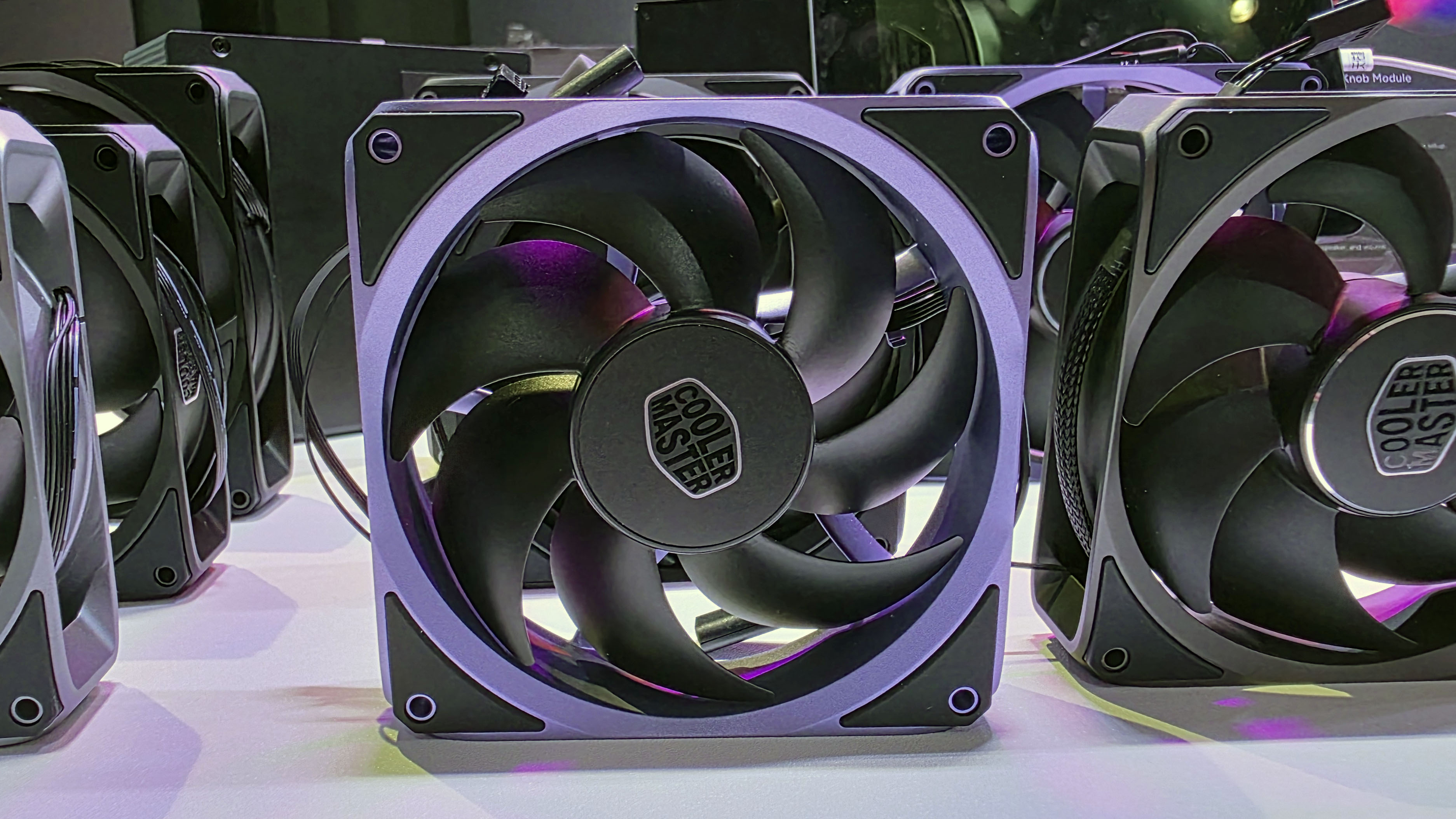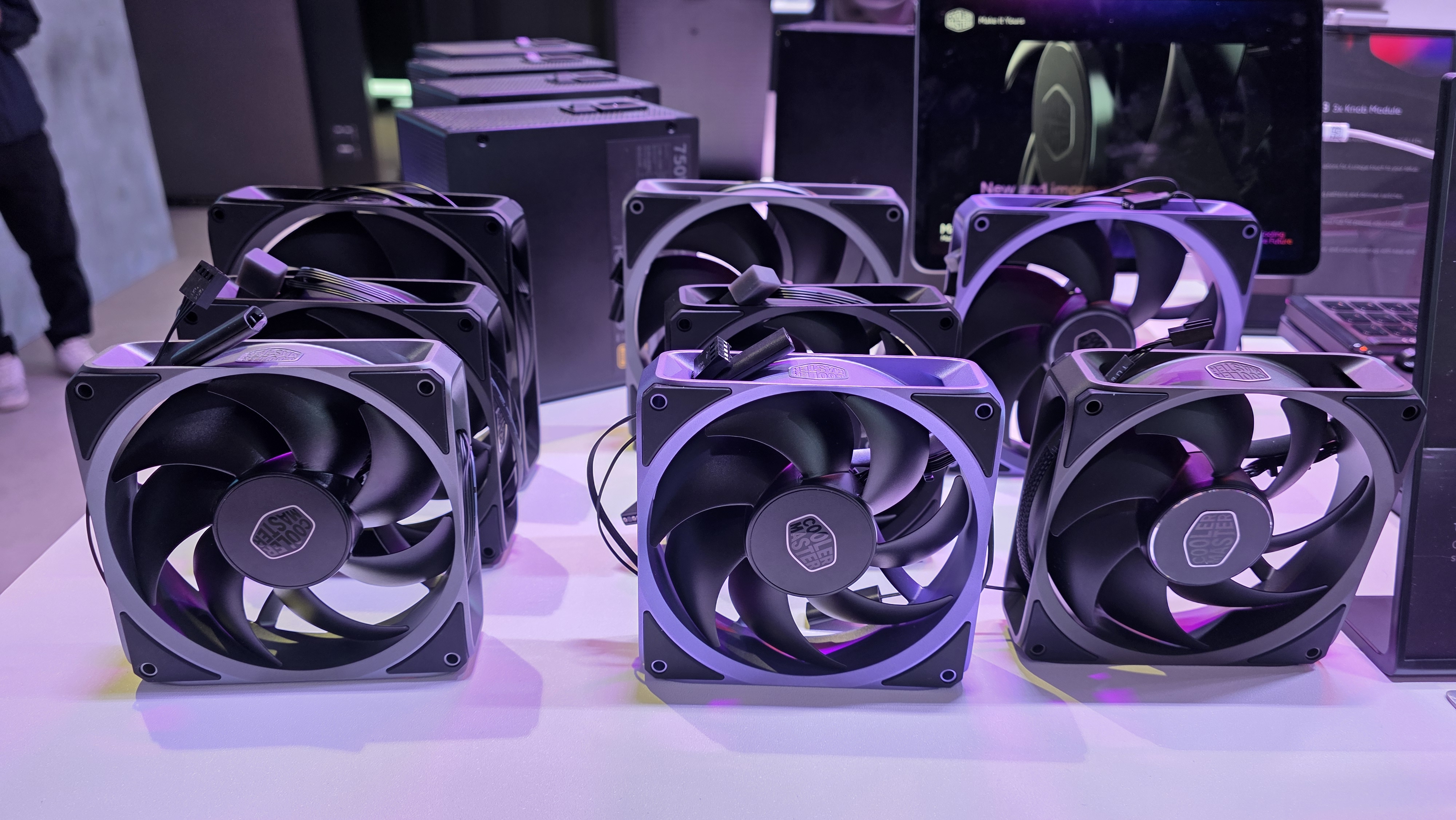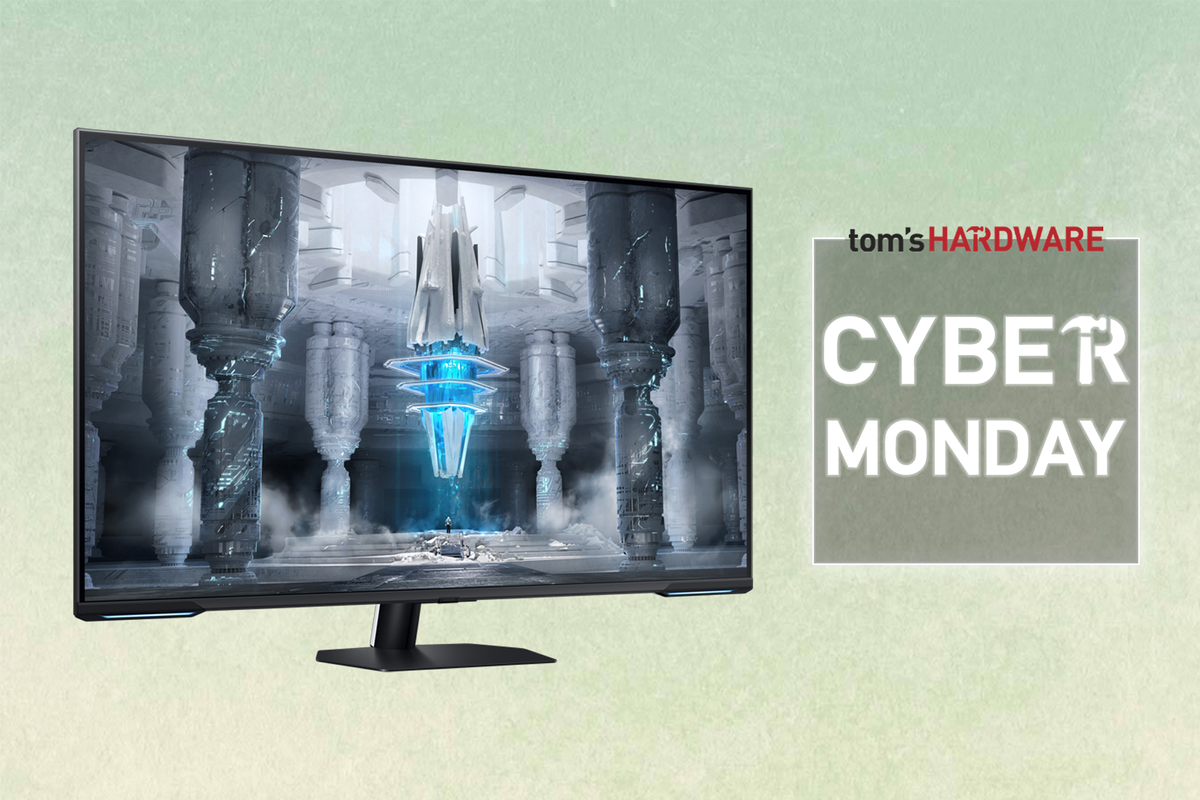Cooler Master's latest MasterFan XT lineup is getting thicker, bulking up to 30 mm versus the typical 25 mm. This is a trend we've seen with new fans from from Hyte, Lian Li, and others, as the extra thickness increases the blade area, improving airflow and static pressure, or reducing the fan speed while maintaining the same performance as a standard 25 mm-thick fan.
But while the standard XT fans will be made using the typical plastic blades and frame, and will come in standard 120 mm and 140 mm sizes to fit your case and cooling needs, the company also showed off an XT Pro model, with an all-aluminum frame and fan blades. A company representative says this reduces vibration and noise, also allowing for slower fan rotation and quieter operation.
There's a good chance that, if you're paying extra for a premium metal fan, you care more about absolute air-moving performance than silent operation. And to that end, Cooler Master says its aluminum MF XT Pro fans will be able to operate at 4,000 RPM, 33% faster than the lesser XT models. That's a speed more typical of server rooms than reasonably quiet-running PCs, so it will be interesting to hear what these spinners sound (as well as perform) like inside a case. But of course, in typical gaming or mainstream productivity workloads, these fans should never need to reach their max speed.

Still, when you're going to ship a product with metal blades that's designed to spin at extreme speeds, injuries and liability become a concern. A Cooler Master representative tells me that all of the Cooler Master MF XT Pro fans will ship with a fin grill to protect your fingers. Presumably that's from the front, though. You'll definitely want to make sure you turn off your PC before fumbling around inside the case if you have one of these fans in your next build.
But physical dangers aside, there have been controversies about metal fans over-promising and
under-deliveringin recent years. So I'm OK with the fact that Cooler Master doesn't have a release date yet for its MF XT Pro aluminum fans. I'd prefer the company keep working on them until they deliver the kind of class-leading performance to match what will certainly be a substantially higher price than most PC fans. Until then, we'll just have to live with the typical plastic or, in the higher-end models, glass-reinforced liquid crystal polymer (LCP) fans available to PC builders today.
Follow Tom's Hardware on Google News to get our up-to-date news, analysis, and reviews in your feeds. Make sure to click the Follow button.

 6 months ago
203
6 months ago
203








 English (US) ·
English (US) ·